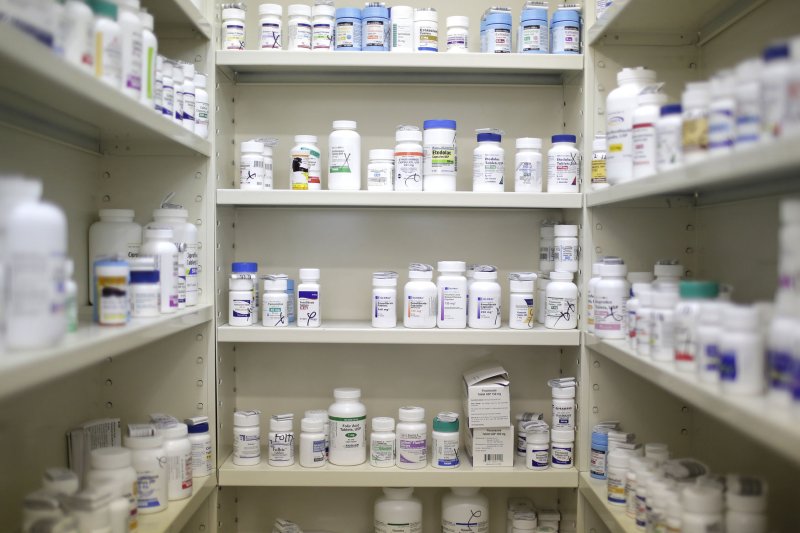Prescription drug costs occupy nearly one-fifth of American healthcare spending and Americans spend more than double that of other industrialized nations on prescriptions, which researchers at Harvard Medical School blame on too-long exclusivity delaying generic drugs and the lack of drug price negotiating power healthcare payers have. File photo by John Angelillo/UPI |
License Photo
BOSTON, Aug. 23 (UPI) -- The cost of prescription drugs in the United States far outpaces prices in similarly industrialized countries, and the continuously rising costs are causing concern in every part of the healthcare industry, from patients and doctors to insurance companies and government officials.
Researchers at Harvard Medical School suggest in a new study, published in the Journal of the American Medical Association, that the nature of the American drug marketplace, as designed and regulated by the government, bears a large part of the blame.
As of 2013, per capita spending on prescription drugs in the United States was more than double that of 19 other industrialized nations -- $858 per year in the United States, compared to an average of $400 per year everywhere else. Overall, prescriptions occupy about 17 percent of U.S. healthcare services, the researchers estimate.
Pharmaceutical companies claim the high prices fund research and development of new drugs, but the fact that many of those drugs are discovered and developed using government funding from the National Institutes of Health and other agencies, this may not be true.
"It's expensive to develop medications, but not as much as portrayed -- drugs are priced based on what the market will bear," Dr. Aaron Kesselheim, a researcher at Brigham and Women's Hospital and the Harvard Medical School, and lead researcher on the new study, told UPI in a phone interview.
Kesselheim said a combination of factors -- primarily government-protected exclusivity on new drugs for longer than necessary, the permitting of increasing costs on old drugs and the lack of oversight or negotiation on drug costs -- make medicines more expensive in the United States.
The most significant factor Kesselheim found keeping drug prices high is monopoly rights, from the U.S. Food and Drug Administration, and exclusivity for certain time frames connected to patents, which delay the introduction of cheaper, generic versions.
"It's about the protection companies are getting, how long it lasts, and how they're able to leverage that protection," Kesselheim said. "Policymakers could come up with ways to better tailor the exclusivity period to the innovation of the product."
While policymakers could change the rules, which are propped up by lobbying and other business and legal strategies, the lack of negotiating power insurance companies, and even Medicare and Medicaid, have to lower prices also keeps costs high in the United States.
Even without changes to the system, Kesselheim said attempts to get doctors to choose the most effective medication that also has the best price -- such as the proposed change to drug reimbursement Medicare made in March -- could help lower costs even without government action.
"Those types of incentives can work, as long as patients are driven toward evidence-based products," Kesselheim said. "Making sure that physicians incentives and social incentives are aligned [is key]. Some people have suggested the ACO [accountable care organization] model could help try to encourage cost-effective prescribing, and further investigation of those sorts of models may be useful. Ultimately, patient outcomes have to be moving in the right direction."
A doctor's group called for the United States to move to a single-payer health insurance system, potentially similar to those in Canada and England, to make care more available to everyone while bringing down costs.
They argue that between the number of people seeking care and the single-payer system creating the ability to aggressively negotiate the cost of drugs, overall healthcare costs in the United States would go down, while people get healthier.
"I do think there are a lot of improvements that can be made to the U.S. system without tossing it out the window and starting over with the type of system you'd find in a European country," Kesselheim said.
"There are things that individual patients can do: Talk to legislators, and talk to their doctors about their concerns and medications," he added. "Unfortunately, these kinds of conversations don't often happen in our system."















